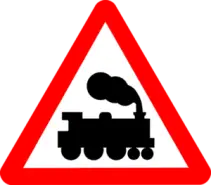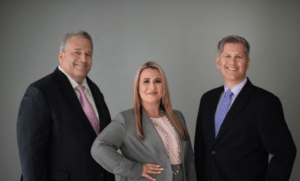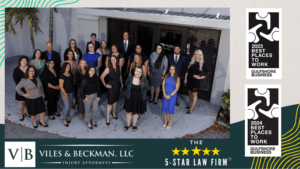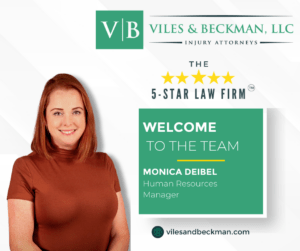 While train accidents are rare in Fort Myers, they do happen. Injuries can range from minor cuts, scrapes, and bruises to catastrophic injuries and even death. As with any public transportation, railroads are responsible for keeping vehicles and equipment, including tracks, in good working condition. However, in some cases, accidents are caused by third parties, such as a vehicle crossing the tracks in front of an oncoming train. Because of the size and weight of the train, it cannot stop on a dime. When a train hits something on a track, especially something as large as a car or truck, there is a good chance of the train derailing. If you have been injured in a train wreck, contact a Fort Myers personal injury lawyer at Viles & Beckman for a free case evaluation. Advocating for the injured since 1995,
While train accidents are rare in Fort Myers, they do happen. Injuries can range from minor cuts, scrapes, and bruises to catastrophic injuries and even death. As with any public transportation, railroads are responsible for keeping vehicles and equipment, including tracks, in good working condition. However, in some cases, accidents are caused by third parties, such as a vehicle crossing the tracks in front of an oncoming train. Because of the size and weight of the train, it cannot stop on a dime. When a train hits something on a track, especially something as large as a car or truck, there is a good chance of the train derailing. If you have been injured in a train wreck, contact a Fort Myers personal injury lawyer at Viles & Beckman for a free case evaluation. Advocating for the injured since 1995,
Train Accident Statistics
According to the Bureau of Transportation, there were eight fatalities and 139 injuries in train accidents throughout the United States in 2018. Of the fatalities, none were caused by derailments, five were caused by collisions, and three were caused by other causes. Of the injuries, 24 were caused by derailments, 148 by collisions, and 21 by other causes. The total number of accidents in 2018 was 1,836. Of those, 1,327 were derailments, 86 were collisions, and 423 were other causes.
In 2018 in Florida, train accidents accounted for 17 fatal crashes and 83 non-fatal casualties, according to the Federal Railroad Administration Office of Safety Analysis. That number has increased significantly for 2019 with 25 fatal accidents and 103 non-fatal casualties from January through April. The Administration did not speculate as to why the number increased significantly for the first part of 2019.
Expect More, Receive More: Legal Support That Feels Like Family
Causes of Train Accidents
Train accidents have two major causes: derailment and collisions. Because of the size and weight of a train, it is very easy to get injured in a train wreck. Additional causes of train accidents include:
- A collision with something on the tracks. This can include a vehicle crossing the track in front of a train or because of something that someone left on the tracks.
- A collision with rock and debris that might fall on the tracks. While something like this normally happens in mountainous areas, it can also happen in Florida.
- Poorly maintained tracks that may be loose or otherwise broken. If the tracks are loose, they may throw the train off the tracks. Poorly maintained tracks may not switch when the engineer operates the switch. Tracks may be old, including the railroad ties. A broken tie or rusted-out track may cause a derailment.
- A weakened bridge. Old wooden bridges or rusted metal bridges that have not been properly maintained could collapse.
- A track switch that is not working properly.
- Snow and ice on the tracks. Though highly improbable in Florida, this does happen in northern states if the plows do not get out soon enough or if the tracks cannot be cleared in time for a scheduled train.
- Engineers who are under the influence of drugs or alcohol.
- Engineers that do not follow the rules of the road, including speed limits, running lights, not slowing down for intersections with roadways, and taking curves too fast.
- A malfunctioning engine or car.
- Employees who are not safety conscious or have poor judgment.
- Cargo that is not properly loaded and balanced.
- Explosive cargo that blows up during the trip.
- Trip or slip and fall accidents on the train or at the train station. Train employees must keep the floors of the train and the stations free of trip hazards and clean of spills. Even water from the rain that is tracked in should be cleaned up or at least have wet floor signs in place.
- Food poisoning or foreign objects in food. If you are on a trip, and the train serves a meal, the train company could be liable for serving you food that makes you sick or choke.
- Unprotected high-voltage cables. These are found in train stations and should be covered or otherwise protected so that you do not accidentally touch or fall into the cable.
- Stepping on and off the train. Train employees should ensure that you can safely board and deboard the train without falling. This means guiding those who need guidance as they step from the train to the platform or step down the steps if there is no platform even with the train.
Injuries You Might Suffer in a Train Crash
If you are in a train crash, you could suffer from many types of injuries depending on several factors, including whether the train derails, whether the train collides with another object, whether you are standing or sitting, and even where you are sitting in the car.
If you have an underlying condition, such as diabetes or an immune system deficiency, or if you are on a prescription drug that lowers your immune system, open wounds may take longer to heal and have a higher risk of becoming infected. Even if you are healthy, open wounds may become infected. It is important to tell your attorney of any underlying issues that may require you to have additional medical care. Injuries may include:
- Bumps, bruises, cuts, scrapes, and abrasions. These may heal quickly unless you have an underlying condition.
- Strains, sprains, pulled muscles, and other soft tissue injuries. These generally take 4 to 6 weeks to heal unless you need surgery to reattach a muscle or other type of surgery. While underlying conditions do not usually cause infections with these types of injuries, if you have to have surgery, you will have an open wound that could take longer to heal. The open wound would also have a higher risk of becoming infected.
- Fractures. A minor fracture does not break the skin and usually has a low risk of infection. However, a compound fracture does break the skin. Additionally, you usually have to have surgery to repair the fracture. Compound fractures do have a higher risk of becoming infected, especially if you have an underlying condition that causes slow healing or a lowered immune system.
- Head, neck and back injuries. These types of injuries are generally catastrophic and may range from a concussion to a broken back. Concussions have been linked to chronic traumatic encephalopathy (CTE). Even if you think your concussion is minor, you should let your attorney know of that injury because of the possibility of suffering from CTE later in life. Back and neck injuries may lead to chronic pain for the rest of your life or even paralysis.
- Death. A train wreck could cause death if you are thrown from the train or if something in the train causes extensive injuries.
Always discuss all of your injuries, no matter how minor, with your attorney. Be sure to mention any underlying conditions that may delay healing. Depending on the circumstances of your accident, you should seek future lost wages and future medical expenses. The length of time it takes you to heal is important in coming up with a fair number.
Damages You Should Seek Following a Train Accident
Three types of damages are awarded to train accident victims: (1) special, (2) general, and (3) punitive damages. Special damages are also known as economic damages and have a specific dollar amount attached. General damages are also known as non-economic damages and have no dollar amount attached.
Special Damages
Economic damages are the easiest to calculate, as they have a specific amount attached to them. Special damages include:
- Medical expenses for injuries directly related to the accident
- Lost wages for the time you were out of work because of injuries from the accident
- Replacement or repair of personal property
- Future medical expenses if you are expected to have additional surgeries, physical therapy, psychological or psychiatric care, occupational therapy, and followup doctor appointments
- Future lost wages if you are expected to be out of work for the long-term or permanently
General Damages
General damages or non-economic damages require a lot of guesswork by insurance companies and attorneys. Your attorney can make a better guess as to what you may need for future compensation if he or she has a clear picture of your injuries, including underlying injuries that may delay healing. Insurance companies usually use a formula for specific injuries. Your attorney will negotiate a higher amount on your behalf if it is believed that your injuries may take longer than normal to heal. General damages include:
- Pain and suffering. Your doctor must expect the pain and suffering to last for the long term or permanently.
- Loss of companionship. If you lose your loved one in a train crash, you should seek compensation for loss of companionship. Additionally, if you are unable to provide the same amount of companionship to your family due to injuries sustained in the crash, you should seek compensation for loss of companionship.
- Loss of consortium. If you are no longer able to have a physical relationship with your spouse, you should seek compensation for loss of consortium.
- Loss of enjoyment of life. If your injuries are such that you suffer from depression or PTSD, you should seek compensation for loss of enjoyment of life.
- Loss of use of a limb.
In some cases, a court may award future lost wages and/or future medical expenses as general damages instead of special damages because no one knows how much these items will be until they happen.
Punitive Damages
Punitive damages are only awarded if the defendant’s actions were grossly negligent or done with intent to harm. They are awarded to the victim as a punishment and deterrent for the defendant. You may receive punitive damages if the accident investigation finds that a railroad employee’s actions or inactions directly caused the accident, and those actions or inactions constituted negligence. For example, a track maintenance worker crew notices that the tracks are loose and fail to repair the tracks. Another example might be that the driver of a passenger car purposely crosses the tracks in front of an oncoming train with the intent to cause the train to crash. In this example, the driver of the vehicle, or his estate if he is killed in the accident, may face punitive damages.
Complete a Free Case Evaluation form now
Why You Should Retain a Fort Myers Train Accident Attorney
The insurance obligations and rules provided by Florida statutes are for the companies that operate trains in Florida. If you are injured by one train, you may not collect from another train company. If you do not know which company owns the train on which you were injured, your train accident lawyer will find that out during the investigation of your case.
If two trains from different companies are involved in the accident or three trains from different companies are involved in the accident, Florida statutes determine who may be liable for passenger injuries or death. Usually, each company is liable for its own equipment and its passengers. The train companies may equally share liability for shared equipment.
Because Florida has a statute of limitations for personal injury and accident cases, you need to file your claim against the right train company from the start. The statute of limitations prevents you from filing a claim after a certain amount of time has passed. The sooner you contact a Florida train accident lawyer, the better, so you do not miss important deadlines. Additionally, your memory of the accident is fresher, which helps you recount the incident to your attorney.
Contact Viles & Beckman if a Train Injured You in Fort Myers

Viles & Beckman, LLC
6350 Presidential Court
Fort Myers, FL 33919
T: (239) 334-3933
Call or text (239) 334-3933 or complete a Free Case Evaluation form



